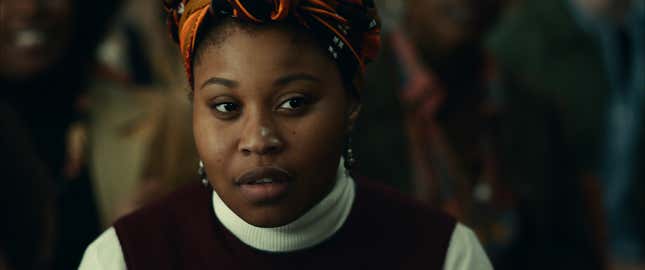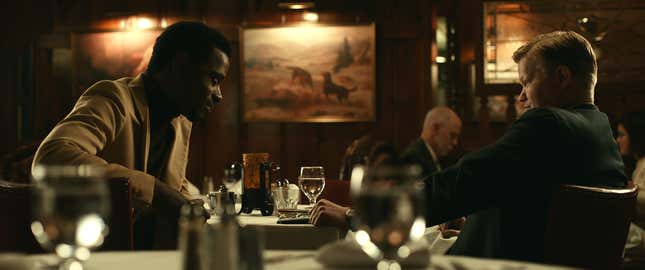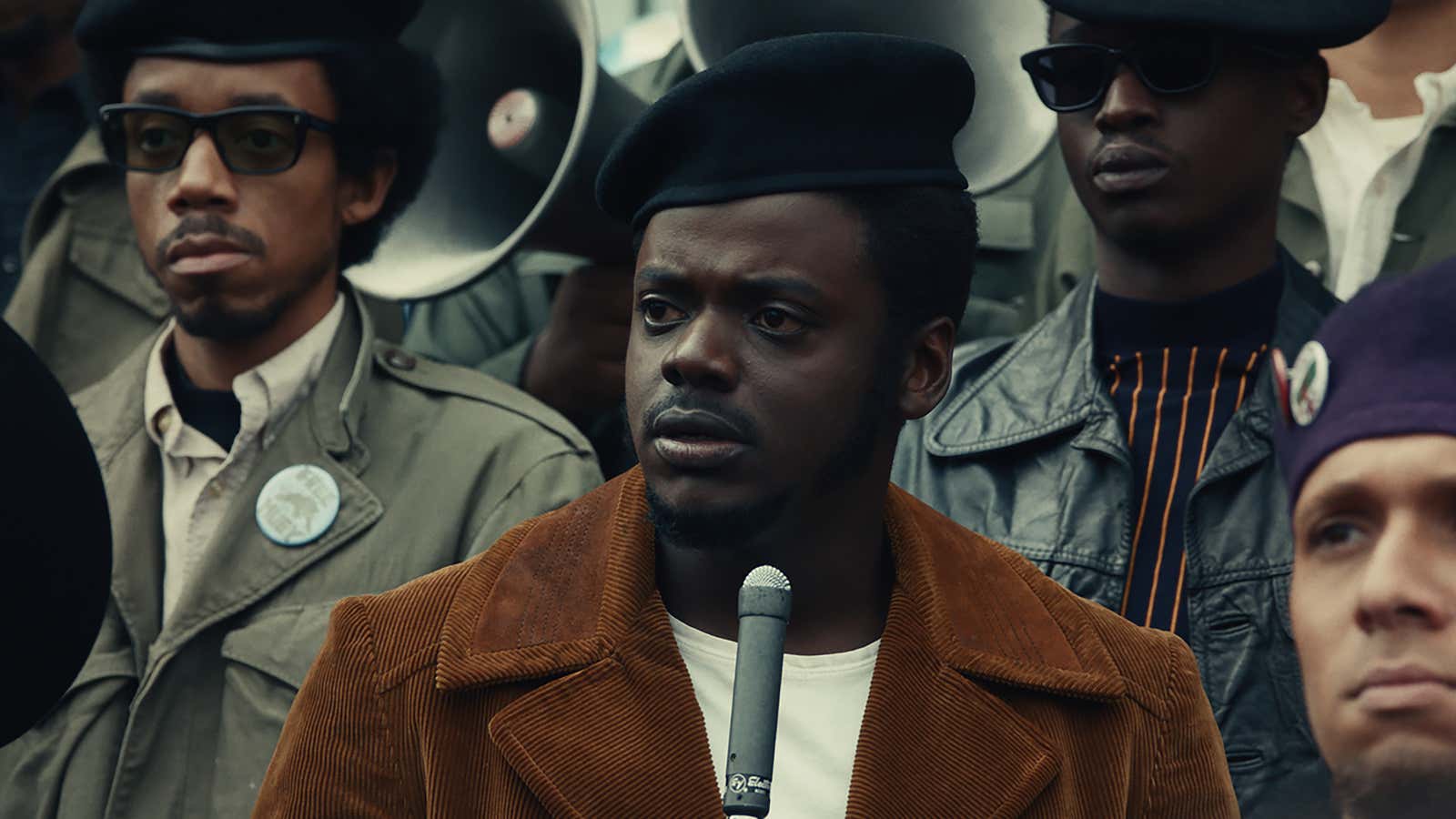Note: The writer of this review watched Judas And The Black Messiah on a digital screener from home. Before making the decision to see it—or any other film—in a movie theater, please consider the health risks involved. Here’s an interview on the matter with scientific experts.
It’s difficult to overstate the cultural upheaval of the late ’60s. Americans got a small taste of the political chaos of the era in 2020, but for many, that experience was mitigated by the dissociative effect of watching life unfold on a smartphone screen. And the events are still unfolding, besides. The unrest of the ’60s was sustained, organized, and direct, and groups like the Black Panthers, with their commitment to solidarity and mutual aid, posed a tangible threat to white supremacy in this country—until white supremacy, in the form of the FBI, ended the revolution before it could really begin.
In terms of relating this history, Judas And The Black Messiah is relatively straightforward. It’s framed by the familiar device of a character giving an interview, and anchored by that most quintessential of human experiences: a love story. Director Shaka King takes a novelistic approach to the material, concentrating less on the relationship between the two title characters and more on what was going on in Chicago around the time FBI informant William O’Neal (LaKeith Stanfield) infiltrated the Illinois Black Panther Party in 1968. Those hoping for a climactic confrontation between the film’s exciting lead actors won’t find that here, because, well, it didn’t go down like that in real life. But there’s still plenty of dramatic friction to be found.
As Illinois party chairman Fred Hampton, Daniel Kaluuya is the sun around which everything else in Judas And The Black Messiah revolves. Hampton recruits new members, unites warring factions, and, with his charisma and radical platform, scares the bejesus out of FBI director J. Edgar Hoover (Martin Sheen). The activist really comes alive in front of a crowd, as Kaluuya channels the searing intensity he brought to Steve McQueen’s Widows to more righteous but equally electrifying ends. Even off stage, however, the stalwart Hampton rarely lets down his guard, which is what makes his bond with lover and comrade in arms Deborah (Dominique Fishback) so special. She knows how to get through to him the way he gets through to an audience, and Fishback’s knowing softness balances Kaluuya’s steadfast strength to moving effect.

Compared to Hampton, O’Neal is a rat running through a flaming maze, desperate, fearful, and eternally reactive. Stanfield’s performance is similarly evasive. On the one hand, Bill is an accomplished liar who’s able to work his way into Hampton’s inner circle without breaking character. On the other, he’s squirrelly, excitable, and unable to hide his emotions when placed under intense pressure. But although Stanfield and Kaluuya offer up two compelling—and contrasting—performances, Judas And The Black Messiah is an ensemble piece with no weak links, only secret weapons.
The opposing physicality of the film’s leads is just one way that King shows rather than tells. At one point, a cut from O’Neal’s dark, cramped room to the plush suburban digs of his FBI handler, Roy Mitchell (Jesse Plemons), demonstrates their power imbalance without a line of dialogue. (Plemons is a casting coup in a film full of them, a perfectly milquetoast representation of the true face of white supremacy.) Just as Mitchell did to O’Neal, information is withheld from the characters and doled out in fragments throughout. And as the tension builds, so does the impression of a trap being built and set somewhere just out of sight. It’s an elegant and subtle dramatization of institutional racism and how it operates.

King also shows a talent for juxtaposition in his transitions between scenes, deploying them to underscore points and to add small moments of ironic humor in this otherwise serious-minded story. (Early on, we see archival footage of Hampton talking about free breakfast for children, before a hard cut to Hoover dramatically declaring, “The Black Panthers are the single greatest threat to our national security.” Free breakfast! The horror!) His confident direction keeps the camera moving throughout, and the free-jazz score from composers Craig Harris and Mark Isham both suits the period and adds more nervous energy to the already explosive atmosphere in Chicago. The Windy City shown in this film is not one of skyscrapers and an expansive lakefront, but of modest brick dwellings, dingy back alleys, and industrial yards belching toxic smoke into the air breathed by children living blocks away.
Both Hampton’s son, Fred Hampton Jr., and his mother, Deborah Johnson (who later changed her name to Akua Njeri), worked as consultants on Judas And The Black Messiah, and the film is certainly an admiring portrait of the Black Panthers. But King and co-screenwriters Will Berson and Keith and Kenneth Lucas (a.k.a. comedy duo The Lucas Brothers) add layers to this already complicated story, extending just the tiniest bit of sympathy to O’Neal (he’s caught in a snare as well) and making Mitchell conflicted about his role in Hampton’s eventual murder. Both the militant and the humanitarian sides of the Panthers are on display here, and if the Chicago Police Department is depicted in a villainous light, history bears that out too. If anything, the fact that this film feels enervating and relevant 50 years later speaks to just how right Fred Hampton was. You can kill a person, but you can’t kill an idea.
